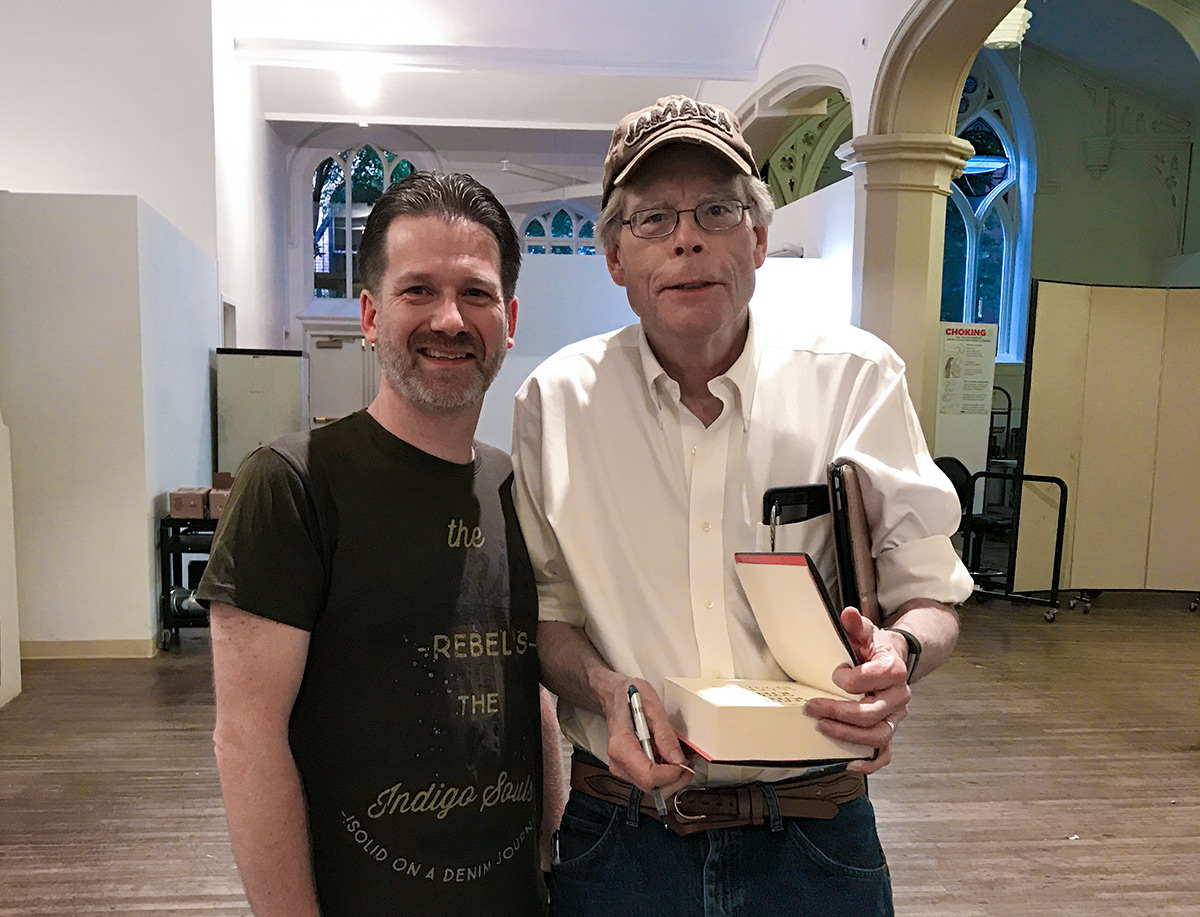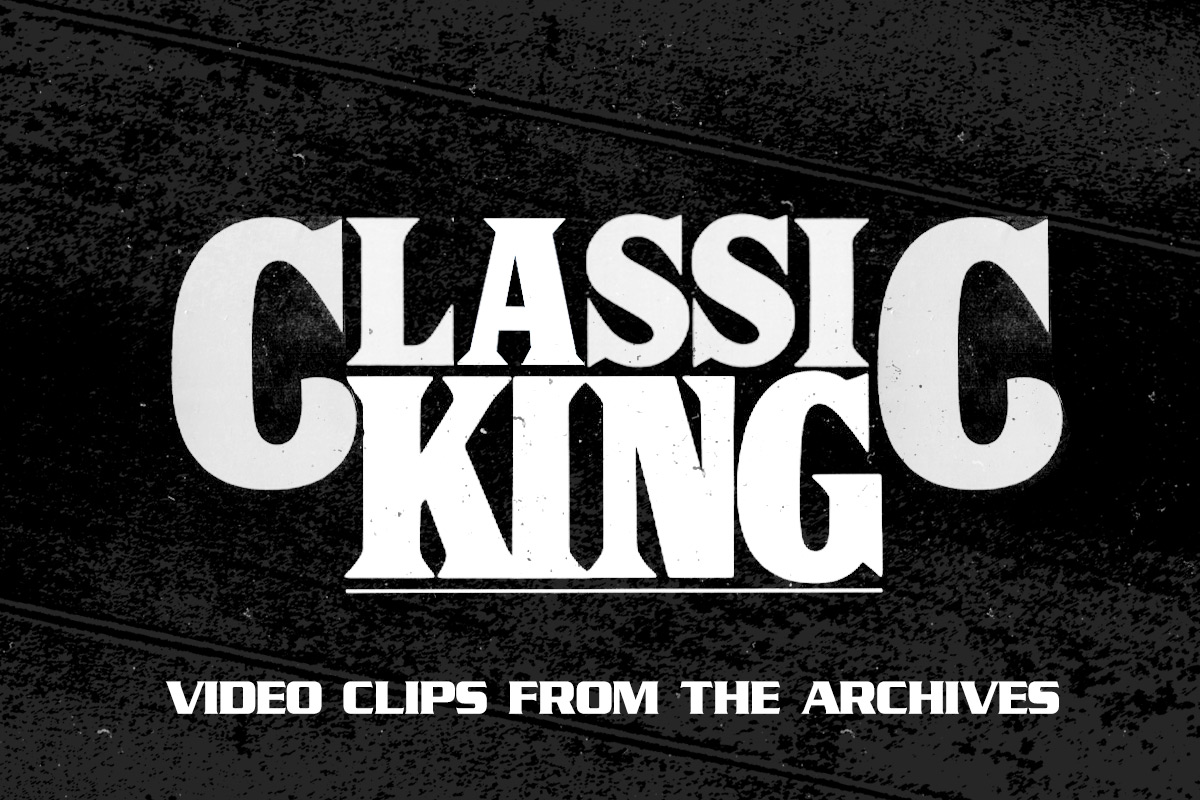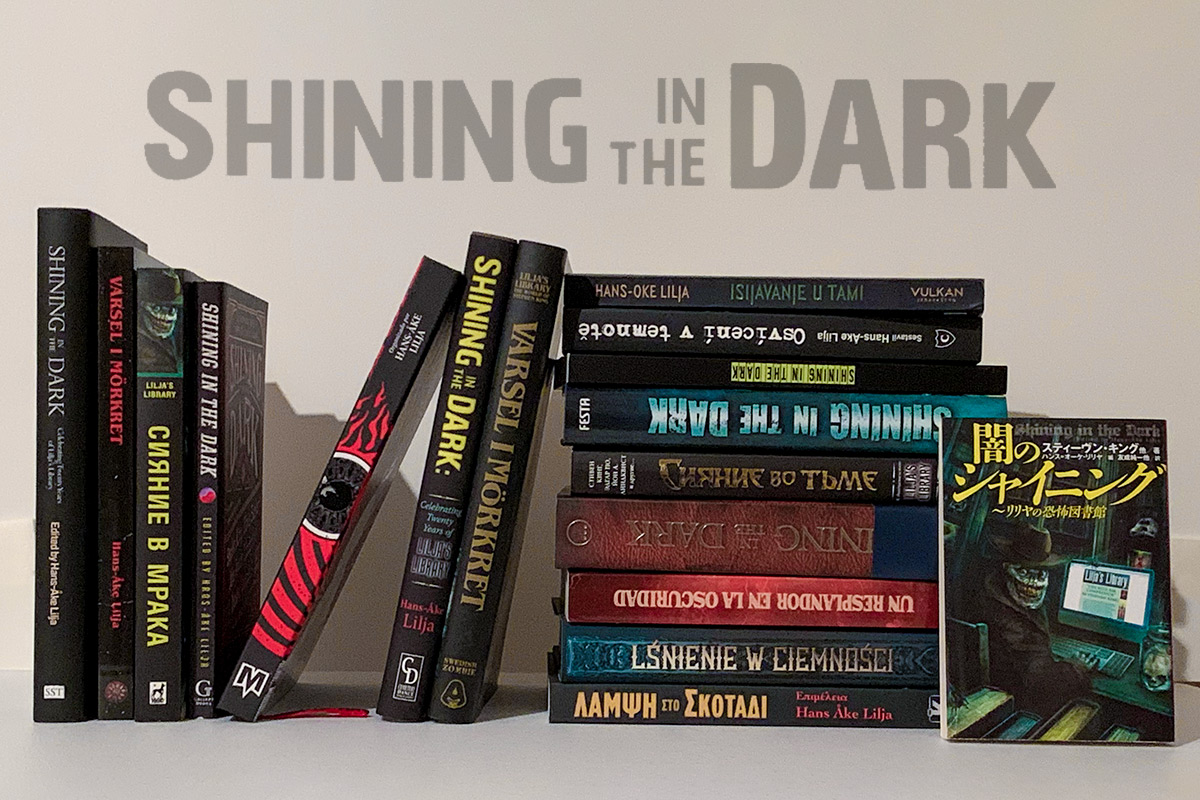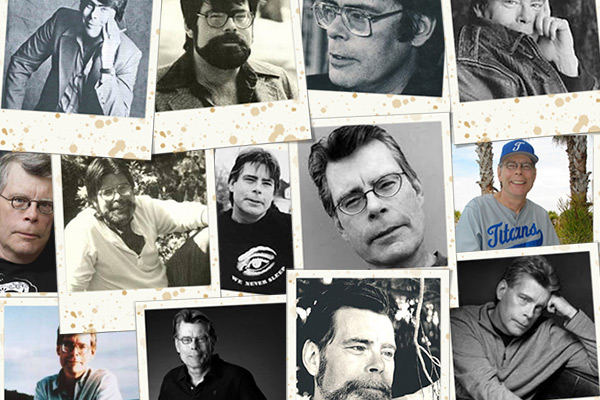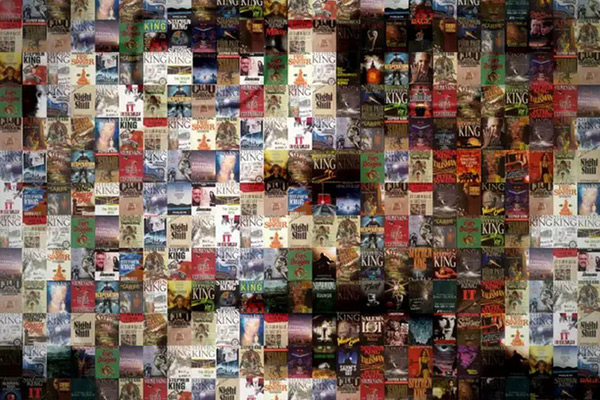Robin Furth
Posted: April 18, 2007
_
 Lilja: For those out there that don't know about you and your Dark Tower concordances, can you tell me a little about yourself and how you ended up working with Stephen King?
Lilja: For those out there that don't know about you and your Dark Tower concordances, can you tell me a little about yourself and how you ended up working with Stephen King?Robin Furth: I started working for Steve King back in 2000 - the year after his terrible accident. By that time Steve had already published On Writing and needed somebody to sort through the thousands of responses he'd gotten to the On Writing story competition. He wanted to help out a starving grad student so he contacted Burt Hatlen one of my professors at the University of Maine who also happened to be one of Steve's old advisors. Burt knew that I was a writer, that I loved fantasy and sci-fi, and that I was a fan of Steve's work. Hence, he recommended me for the job. (Lucky me!) At the end of that particular assignment I went into Steve's office and met the man himself. At that point he asked me if I wanted more work. He was about to return to the Dark Tower series and needed someone to write up lists of characters and places and record the pages on which they could be found. (He wanted to be able to double-check for plot and character continuity - no small job in such a big body of work.) Anyway, when Steve asked whether I was interested in the job I said yes. (!) Amazing how much that one yes has transformed my inner landscape.
Lilja: Were you in on the comic from the start? I guess your involvement was essential to the entire project, right?
Robin Furth: Yes, I was there at the original meeting between Steve, Chuck Verrill, and Marvel. (Well, I wasn't there in body. I was there via phone link.) I'd spent so long in the Dark Tower universe that Steve thought it would be a good idea to have me on board for the Marvel project. I'd never worked in comics before but I loved graphic novels and illustrated books so was excited about the whole thing. I also wanted to see Roland and his friends take on that extra dimension - to have faces and bodies which moved through space.
Lilja: A lot of fans feel that the comic is more your story then King's. Just to get that notion out of peoples minds, can you shed some light over what your and King's different roles are in creating the comic?
Robin Furth: The story covered by the first seven comics is Steve's story - the one he told in Wizard and Glass. My job has been to adapt that novel to a new format, which meant cutting some scenes and adapting others. (Occasionally I ended up adding and adapting bits from other Dark Tower books, such as the scene in issue #1 when Roland and his friends attend a falconry class.) Adapting a novel to the comic book form is a bit like altering a novel and making it into a film. Everything has to be visual, and you have to tell your reader everything you can via action. Hence, my real goal has been to stay true to Steve's vision - a vision recounted over the course of the seven book series. I've tried hard to remember the face of my father, say thankya. All stories and story cycles go through Steve so not only was he the original author but he's also the final editor!
 Lilja: So you get a basic story line story from King that you work it into a script for the comic. Then Peter David makes it fit in the comic itself, is that correct?
Lilja: So you get a basic story line story from King that you work it into a script for the comic. Then Peter David makes it fit in the comic itself, is that correct?Robin Furth: I guess the technical term for what I do is plotting. Basically, it's my job to condense Steve's novel down into seven comics of (roughly!) 22 pages each and somehow, despite the cuts, have the story and characters remain true to the original vision. Peter's task is then to create dialogue - to make the characters sound like they do in the books, and to generally catch the rhythms of Mid-World.
Lilja: Does it happen that King himself can't keep track of things and write in errors that you then have to caught? I mean that was partly why you did the concordances, to avoid errors like that, right?
Robin Furth: The amazing thing about creating such a large imaginative universe is that it's almost impossible to keep track of every detail. (It's kind of like trying to keep track of the life stories of every single person you've ever met, as well as the landscape of every state and country you've ever visited!) While Steve was writing the last three novels of the Dark Tower series one of my jobs was to keep everybody (and every place) in order. To do that I had to create a mental database, where every person and location had an entry where their histories/families/exciting events were recorded. The Concordance is the physical manifestation of that mental database. When I was a kid I really wanted to become a folklorist, so in a sense that's exactly what I've done. Only the folklore (and history) I've specialized in belongs to Mid-World rather than our world.
Lilja: How fresh were your memory about The Dark Tower from when you did the concordances. Did you have to get back and re-read a lot or is it stuck in your head for good now...
Robin Furth: It's pretty much stuck in my head for good now! That really came home to me about a week ago when John Barber at Marvel asked me to describe the guns of Deschain as well as the guns used by apprentice gunslingers. I realized that I knew which scenes in which books contained vivid descriptions of both kinds of guns. I even knew where to find the kind of bullets Roland needed to load up! (And by the way, if you want to know what kind of bullets he uses, go to the Concordance entry entitled CLEMENTS GUNS AND SPORTING GOODS in the OUR WORLD PLACES section. You'll find the page refs you need!)
Lilja: The first series is pretty much an adaptation of King's book and I guess you could take a lot from the book when you did the script for those issues, right?
Robin Furth: I really tried to stick to the book and so did Peter. We both thought that was the best (and only) way to go.
Lilja: Do you feel worried now that you won't be able to do that with the following series, the one that deals with important events that isn't addressed in the books?
Robin Furth: I definitely think about that a lot, especially because staying true to the novels is so important to me. Luckily, the Dark Tower novels are littered with tales about Roland's youth and stories about his friends Alain and Cuthbert, so I had a lot to go on. I've also made friends with Roland's ka-tet over the years, so when I need to know where to go next I ask them. (Hey, I know that sounds weird but it's true.)
Lilja: Do you feel you and King has worked so much together now that you know what he wants and expects?
Robin Furth: I figure it's always dangerous to assume. As Eddie Dean would say, "ASSUME makes an ass out of U and me!" All you can do is your best!
Lilja: I understand that King has the last word on everything. Has he ask you to change anything so far and if so, can you tell me what?

Robin Furth: Steve has been great. He hasn't asked me to change anything. In fact, he told me I was on the Beam, which is a great comfort!
Lilja: You're also writing a series of articles/folktales about Mid-World's history. Can you tell me more about those?
Robin Furth: Those have been great fun to write. As I said earlier, I've been collecting Mid-World folktales for years. Sometimes it's a full tale, sometimes it's just a seed, but they've been growing in my mind and they've gotten so big that it's really nice to be able to transplant them, if you know what I mean.
Lilja: Are those your invention or is King involved in those as well, other then that they are based on what he has written in the books?
Robin Furth: A bit of both. I always base my tales on ones recounted in the Dark Tower books, or on hints we get in the books. Sometimes I combine two tales. (For example the story about the origin of the guns of Deschain combines the story of Arthur Eld's battle with the snake Saita - which we see on a screen located in Castle Discordia - with the creation of the Kingdom of All-World and the origins of the gunslingers.) I always try to run the ideas past Steve to make sure he feels OK about them. Sometimes he wants to be surprised, so we (weirdly enough) switch places. I get to tell him a story!
Lilja: Same with the maps of Mid-World your involved in. Are those all Robin as well, based on what King has written in the books of course?
Robin Furth: Those maps - both the ones in the Concordance and the ones in the comics - take AGES to plan out. In order to do a map I have to go back to all the relevant scenes and literally plot directions. For example, to figure out how to map Hambry, I had to imagine standing on top of Cöos Hill, and from there figure out what I could see, how far away things were, etc. I had to follow all the characters as they walked from place to place as well. It's a huge job, but if you go through the books carefully enough you can find all the info you need.
Lilja: How far in the series are you now? Have you finished all seven issues and moved on to the next set?
Robin Furth: Yep. I finished the second story arc and I've actually handed in a draft of the third story arc (issues 13-18). It really helps everybody if I stay way ahead.
Lilja: I take it that you are in for all the issues, first to last, right?
Robin Furth: I hope to be there right to the battle of Jericho Hill!

